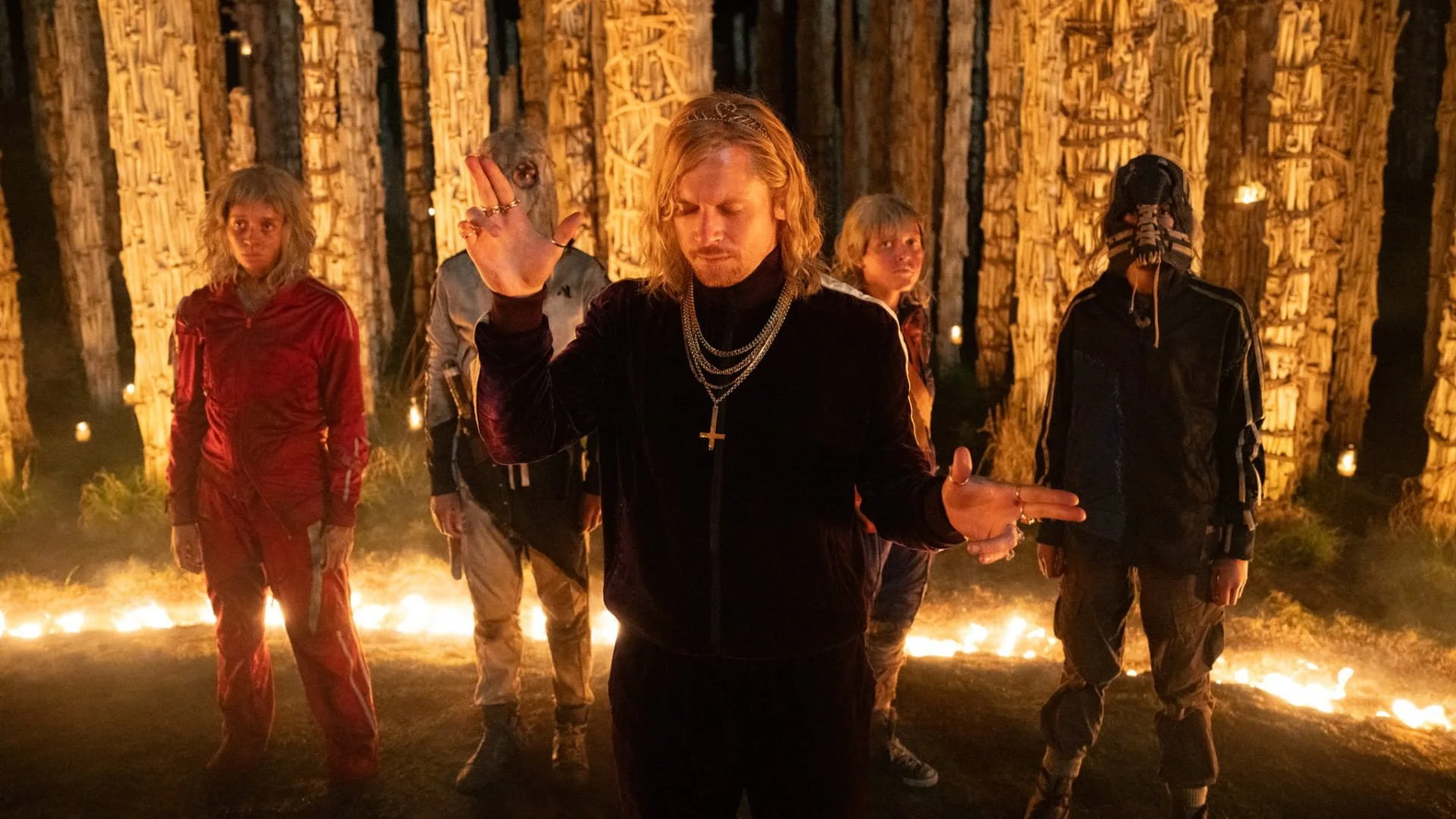Hot Docs 2023: The Rise of Wagner
The atrocities committed in Russia’s war in Ukraine have put the paramilitary organization Wagner Group on the front page of countless newspapers worldwide, but this private army was active long before tanks rolled across the Ukrainian border. Benoît Bringer’s The Rise of Wagner documents the history of this organization, from its beginnings in the civil war in Syria to its present day work in Ukraine and for dictators and mining companies across Africa. It’s a sobering film about the prevalence of violence in our modern world and the ways that the Russian state acts as a shield for the organization, despite denying its very existence.
Bringer frames the film around the stories of two victims of the Wagner Group. The first half of the film begins with a horrifying jolt as we are shown a graphic video of a war crime committed by Wagner mercenaries against Syrian prisoner Mohammed Taha-al Ismail. Ismail’s body is blurred, but the actions are clear enough: torture, mutilation, beheading, crucifixion, and immolation. All the while, soldiers chuckle and mug for the cameras. It’s a horrifying sight, one that Mohammed’s brother, a key interview subject, processes in his interviews and through legal actions against the the Wagner Group in international criminal courts.
Mohammed’s tragic death is the entry point into this story that introduces us to key Wagner figures, including its founder, Russian food services oligarch and friend of Vladimir Putin Yevgeny Prigozhin. Through interviews with journalists and a former Wagner mercenary, we learn about the group’s formation and its involvement in Syria and with the Russian separatist movements in Donetsk and Luhansk. There’s ample archival footage from Wagner mercenaries themselves, as well as investigative details shared by Nobel Peace Prize winners and dissident Russian journalists.
The second half turns the focus to Kirill Radchenko, Alexander Rastorguyev, and Orkhan Dzhemal, three Russian journalists who were killed in Central African Republic while attempting to make a documentary on Wagner. At a checkpoint leading to a mining compound, the men were held at gunpoint, taken into the bushes, tortured, and executed. The film details the investigation into their deaths, which leads back to Wagner and Putin, and interviews Radchenko’s family members, who have tried to cope with his loss in the aftermath.
The film’s investigation paints a clear portrait of Wagner Group’s numerous abuses, as well as their extra-legal status within Russia. It also documents the latest acts of Russian imperialism in Ukraine and Africa in the 21st century. The Russian government officially denies Wagner’s existence, which allows them to use the mercenary group as an advance force in Ukraine and abroad. Whenever the group commits war crimes, the Russian government is able to deny accountability through plausible deniability: they have no official ties with the group, so they bear no official responsibility. It’s a convenient legal loophole, although one Bringer’s film easily exposes as a lie.
With the current war in Ukraine and the timeliness of material about Wagner, The Rise of Wagner does play as a kind of sensationalized current events documentary. There’s the slickly produced, clearly structured approach to the material, which uses moodily lit talking heads, chilling archival footage, copious drone shots, ominous music, and shadowy transitional shots of subjects walking around Saint Petersburg and other parts of Russia. The formal approach creates an atmosphere of dread, which is appropriate considering the subject matter.
The documentary’s biggest drawback is its lack of context when discussing Wagner Group. It tells the story of this individual paramilitary organization, but does little to contextualize the role of mercenaries within the larger global environment. For instance, not once is Blackwater mentioned, despite Blackwater (and its legacy operations under new names like Academi) operating for American foreign interests much as Wagner does for Russian foreign interests. The film need not include an indictment of American imperialism in its discussion of Russian imperialism, but acting like Wagner Group is the only notable paramilitary organization operating in warzones in 2023 is deliberate obfuscation, especially so considering that Blackwater’s atrocities committed in Iraq are at the forefront of the US government’s attempts to extradite Wikileaks publisher Julian Assange.
Thus, the film becomes a useful tool for anti-Russian narratives in this current moment. It’s understandable, considering the war in Ukraine and the Russian government’s culpability for Wagner’s actions. But it does give the film a whiff of propaganda, when the strength of its footage and investigation should suffice in condemning Wagner, and, by extension, the Russian government.
7 out of 10
The Rise of Wagner (2023, France)
Directed by Benoît Bringer.



This mockumentary starring Matt Johnson and Jay McCarrol is a complex metafiction farce and a loving portrait of friendship and Toronto.